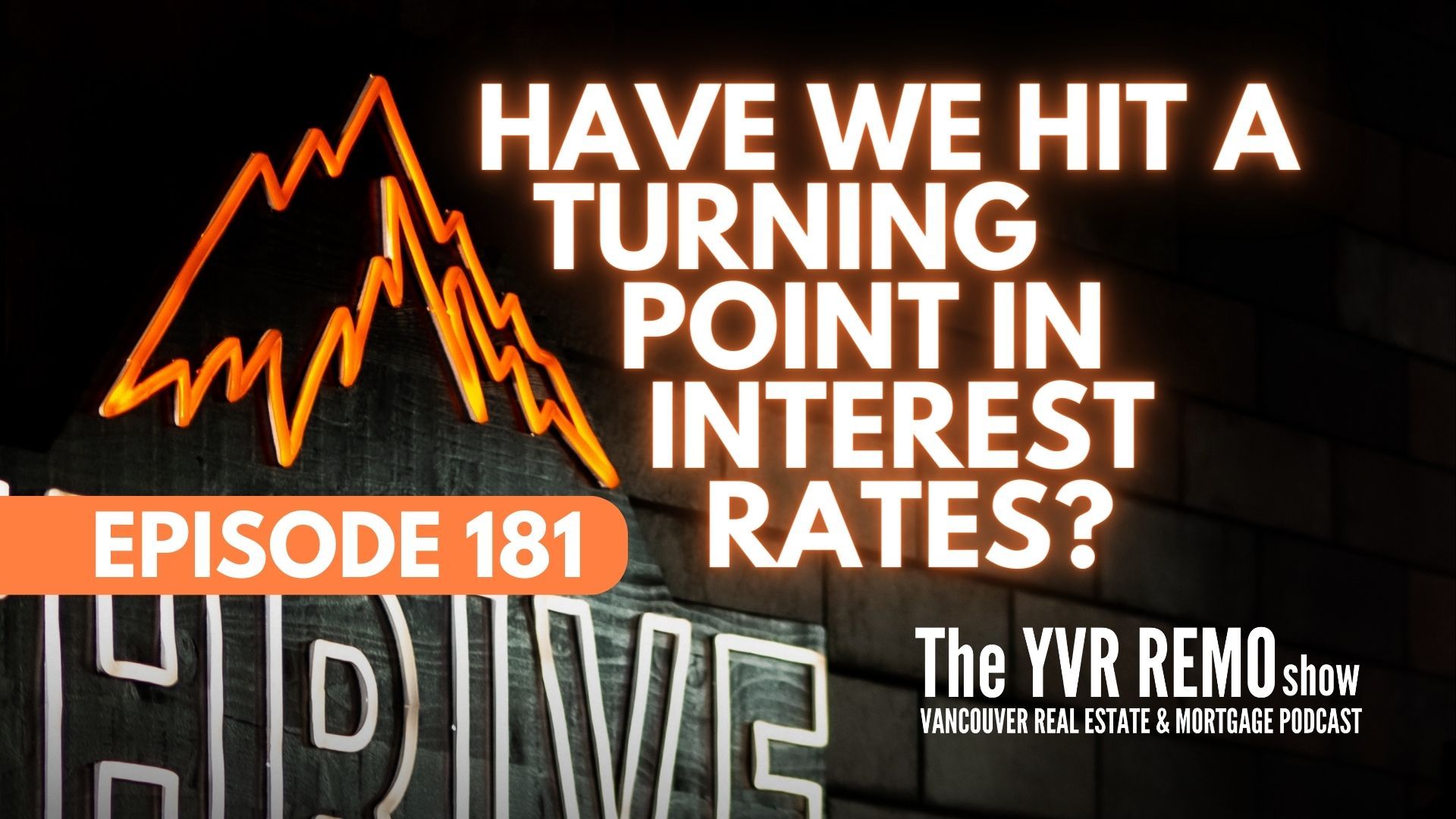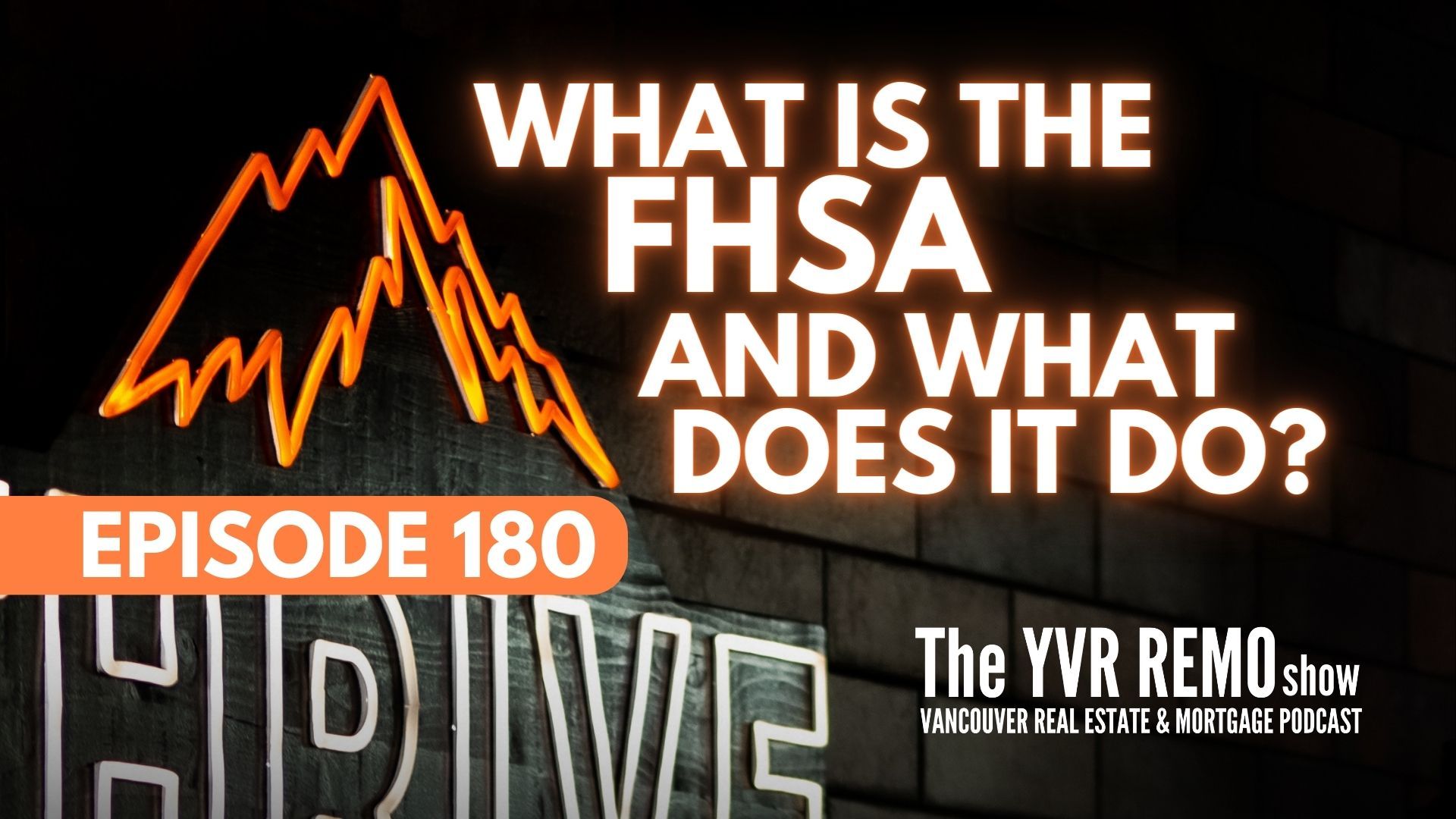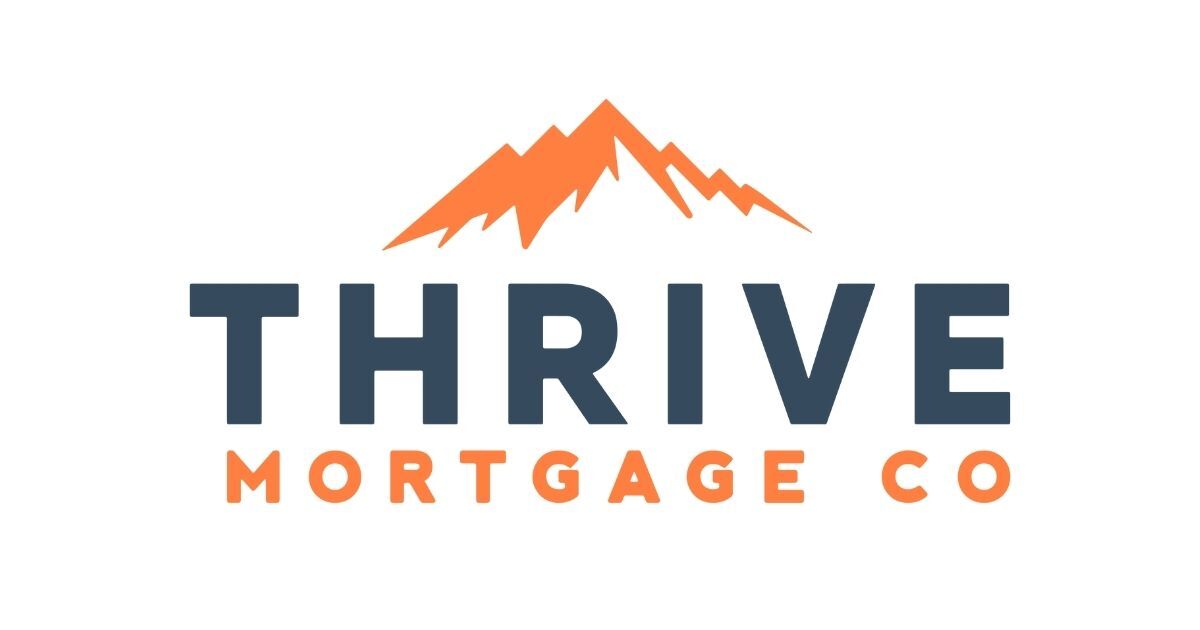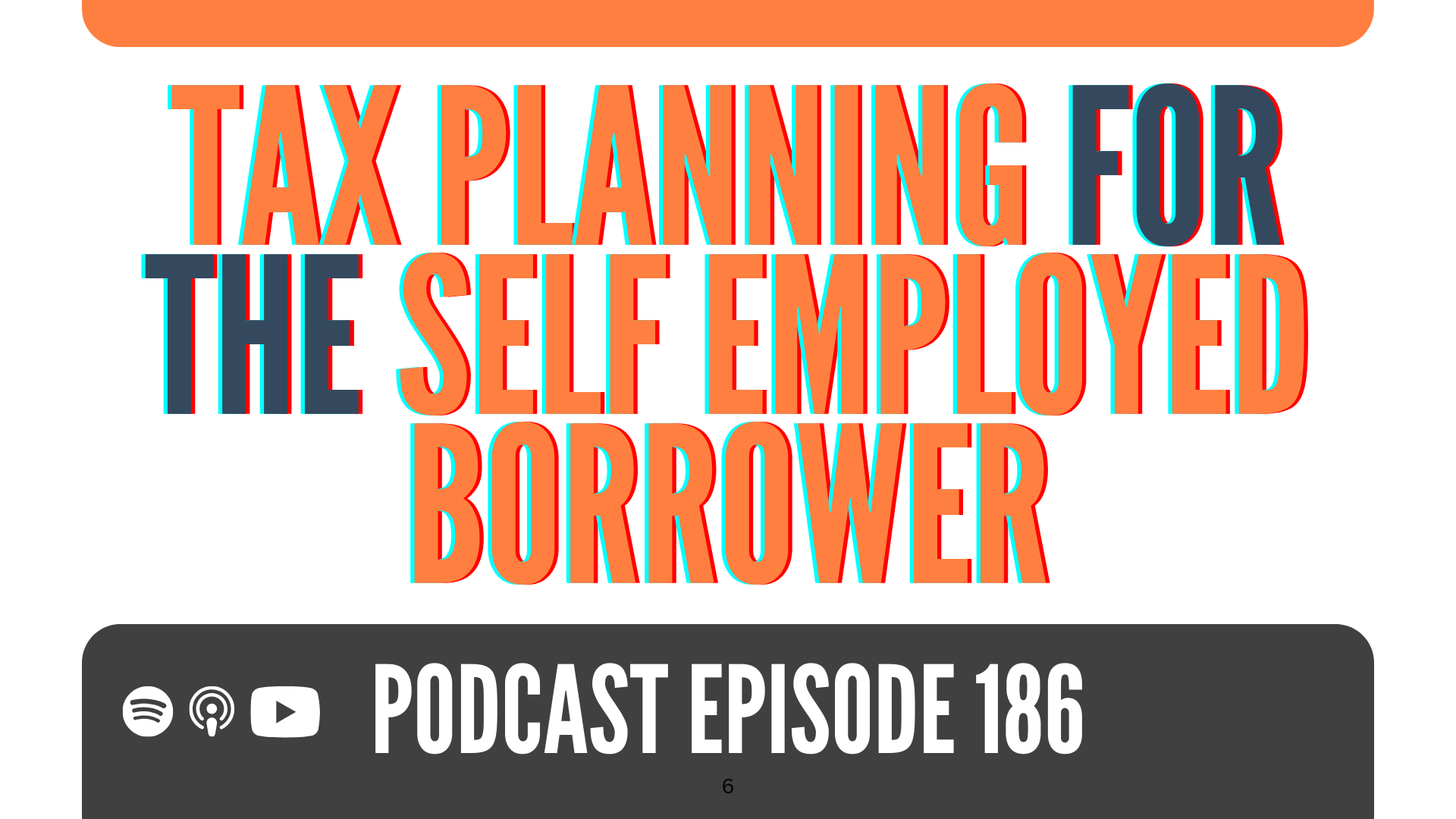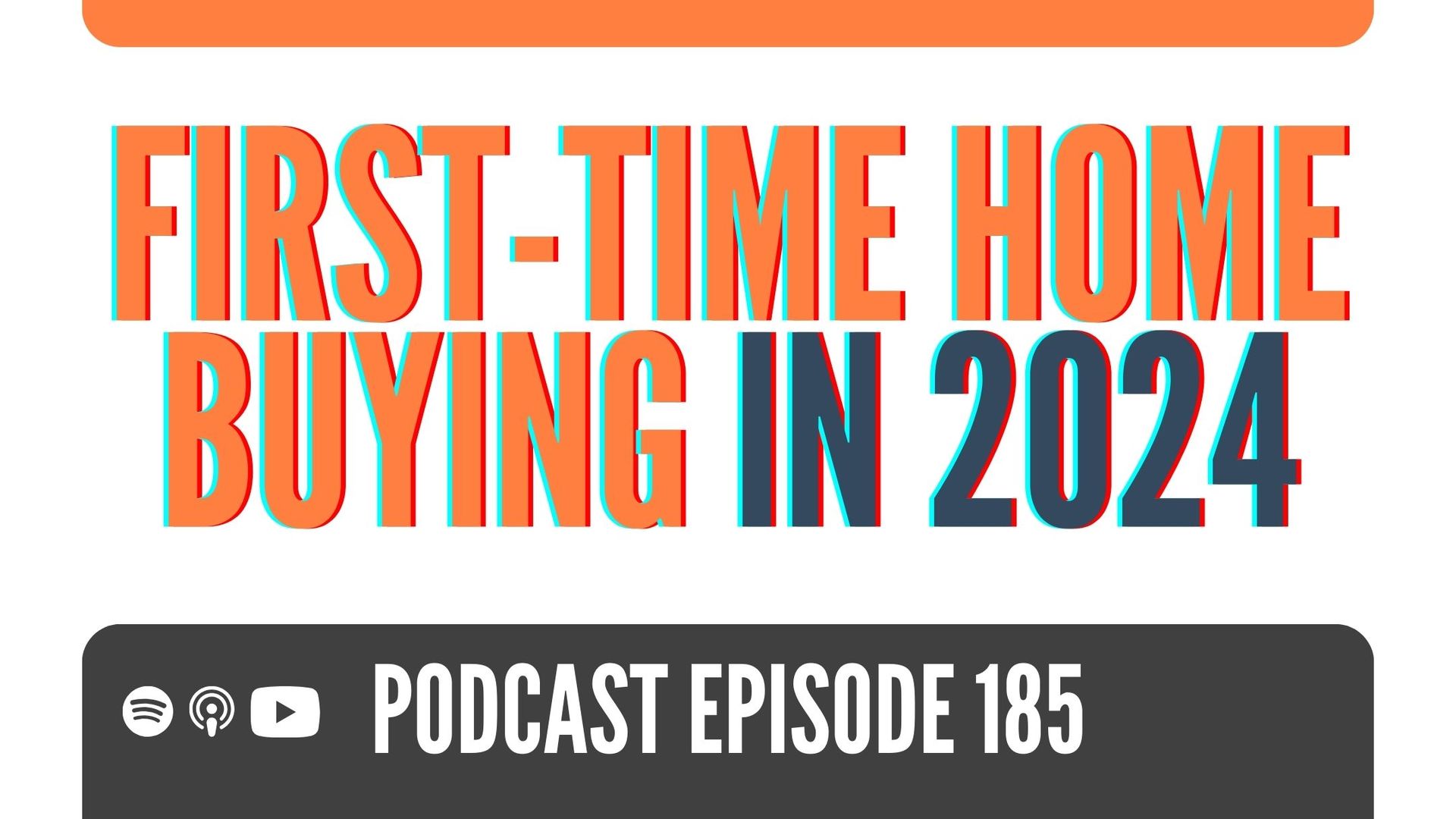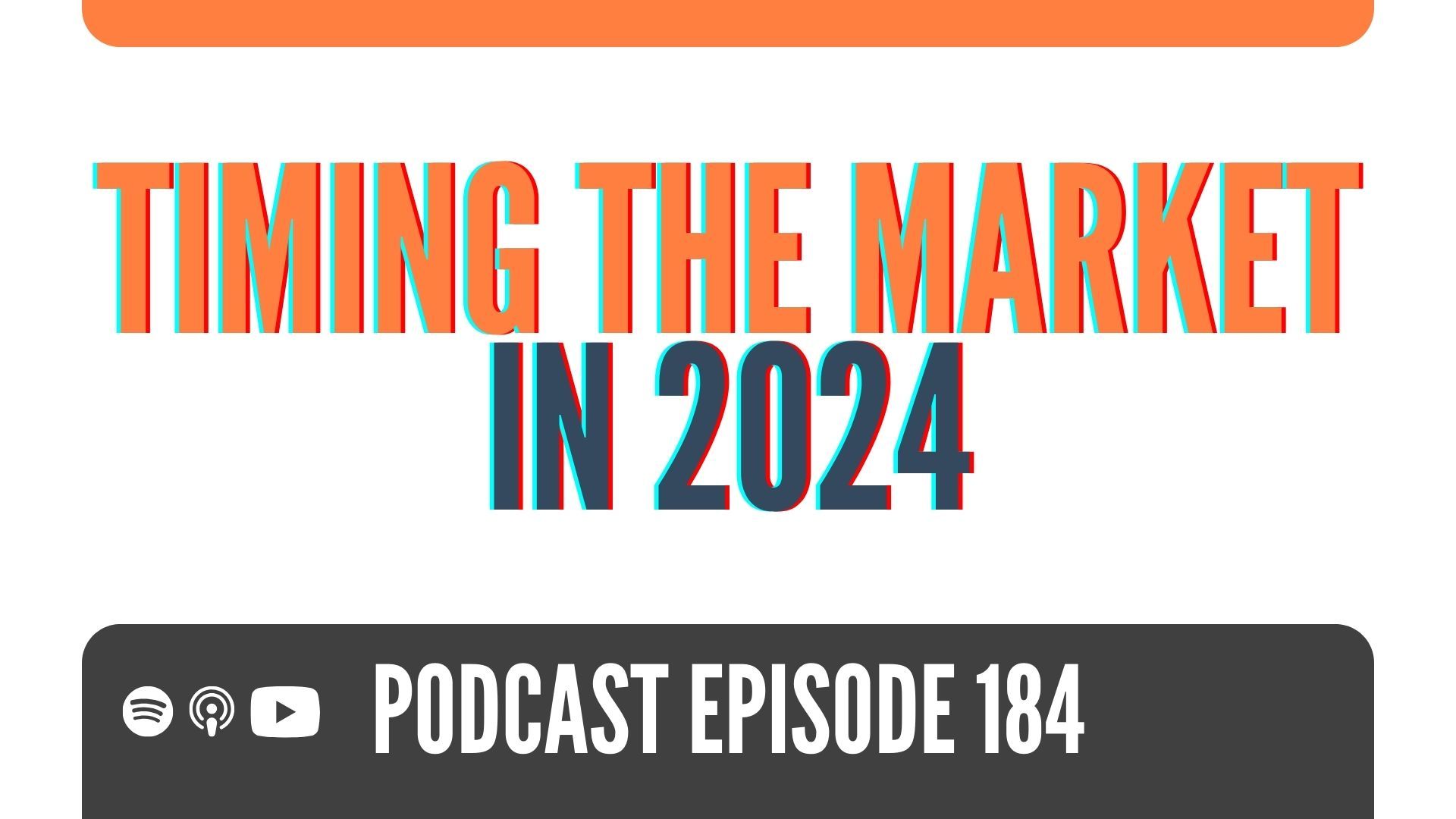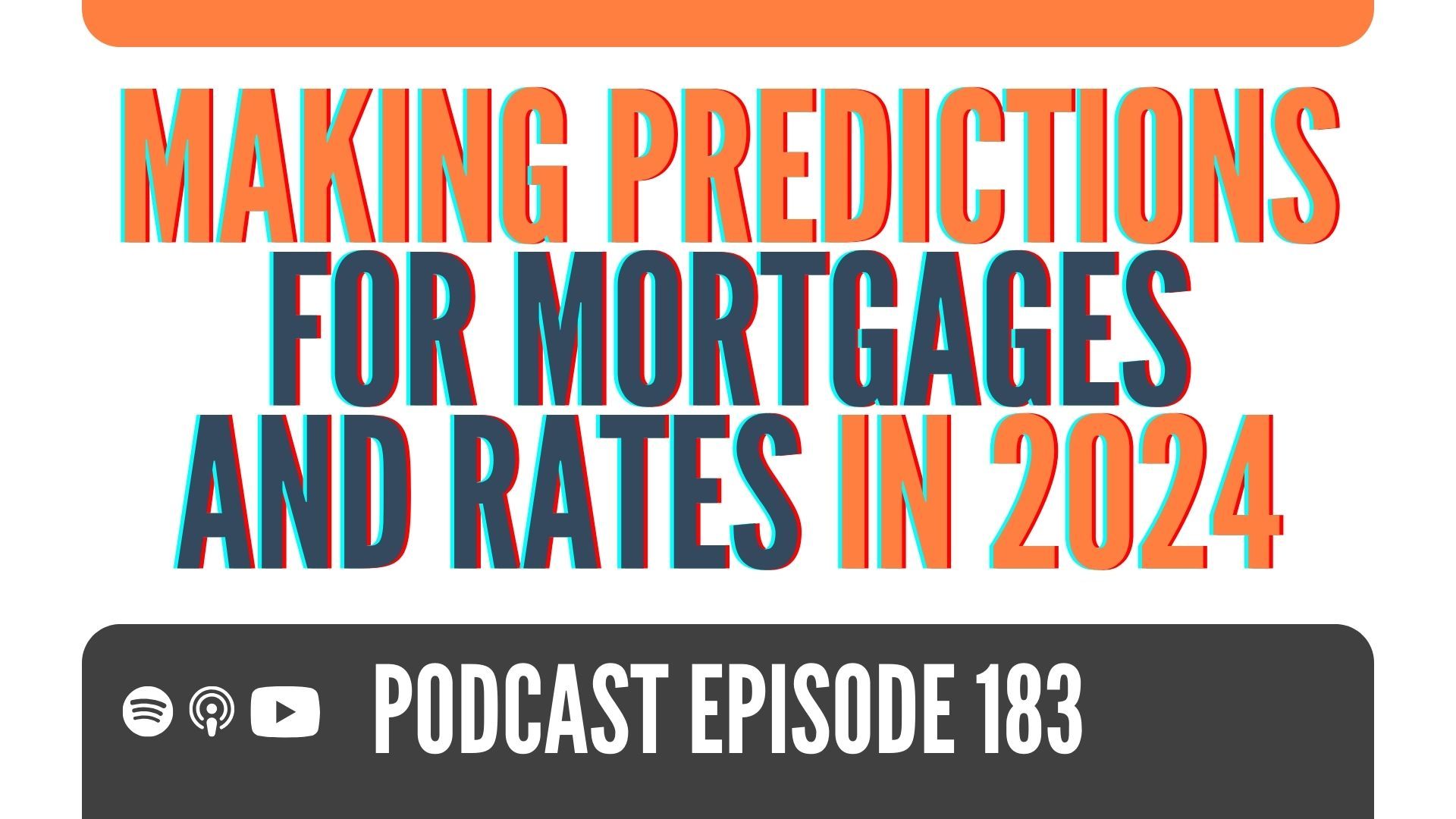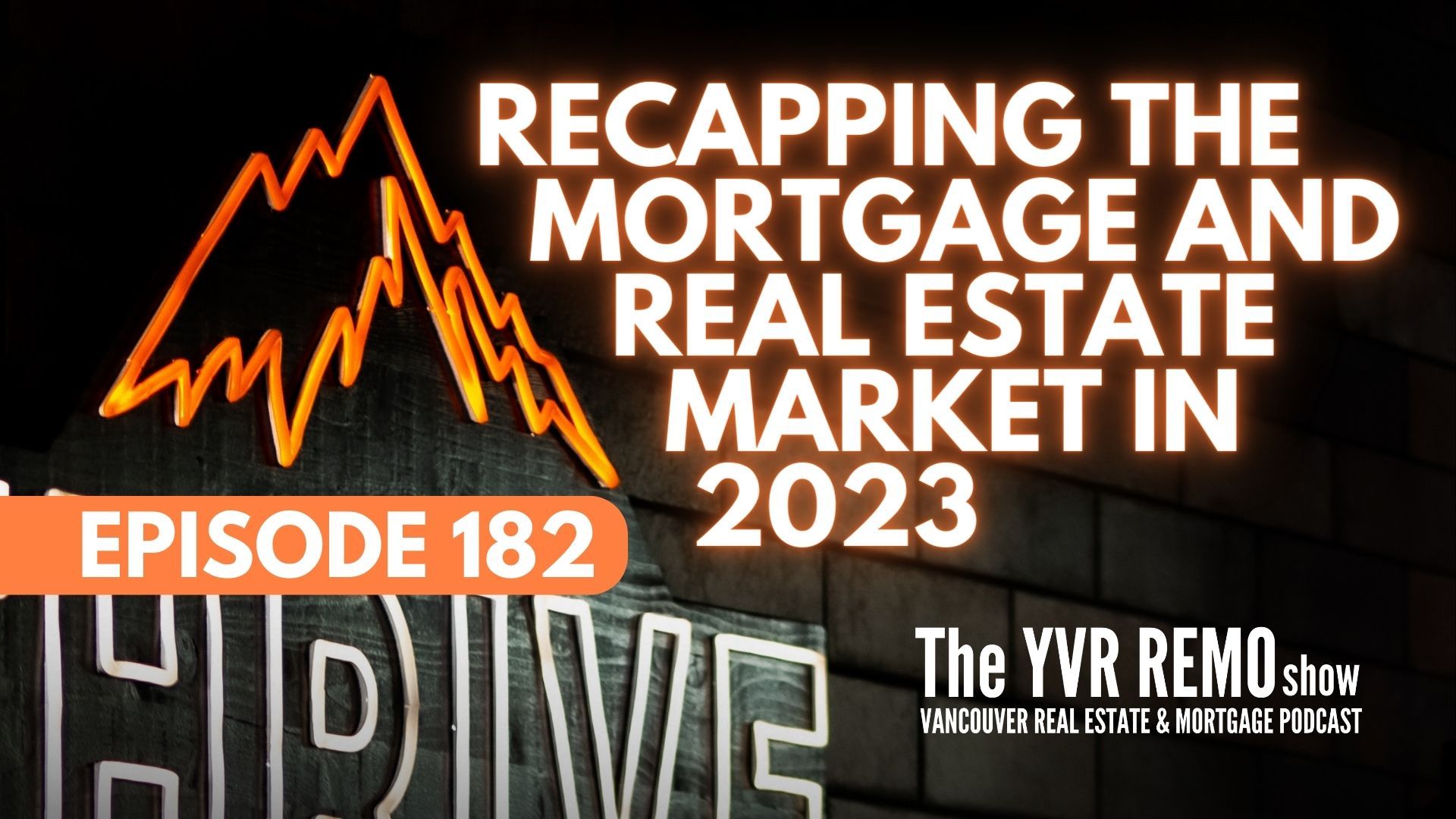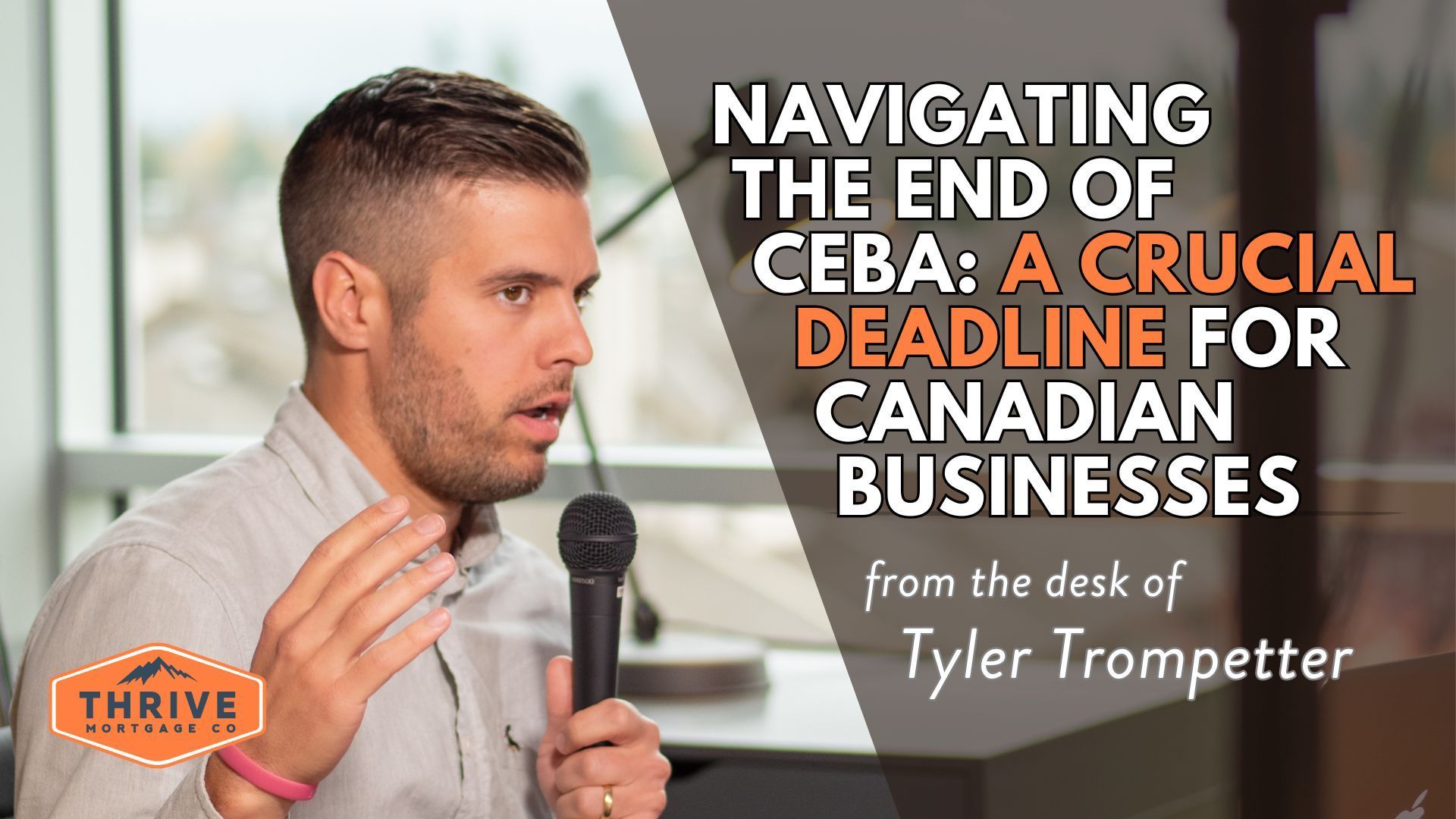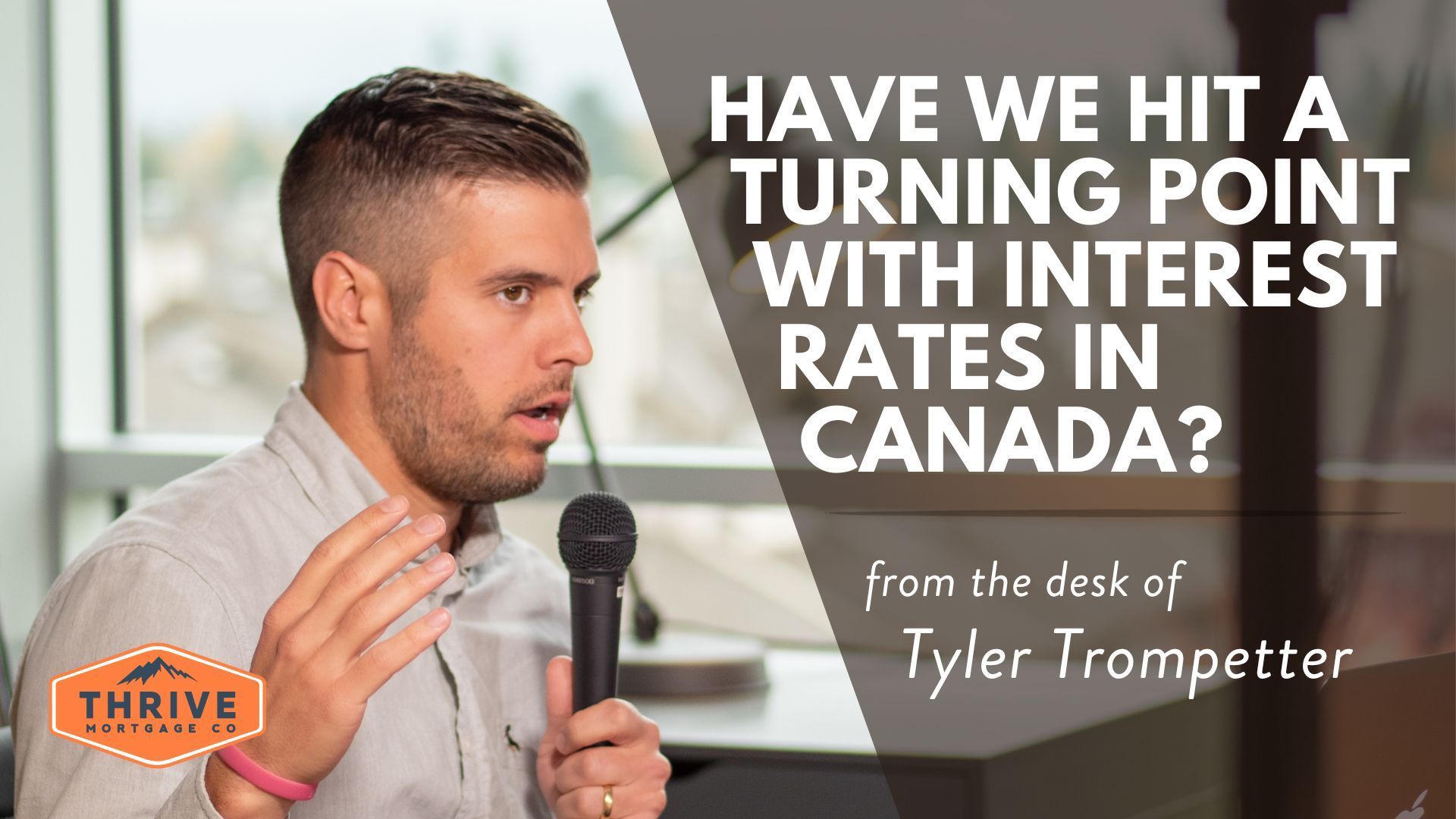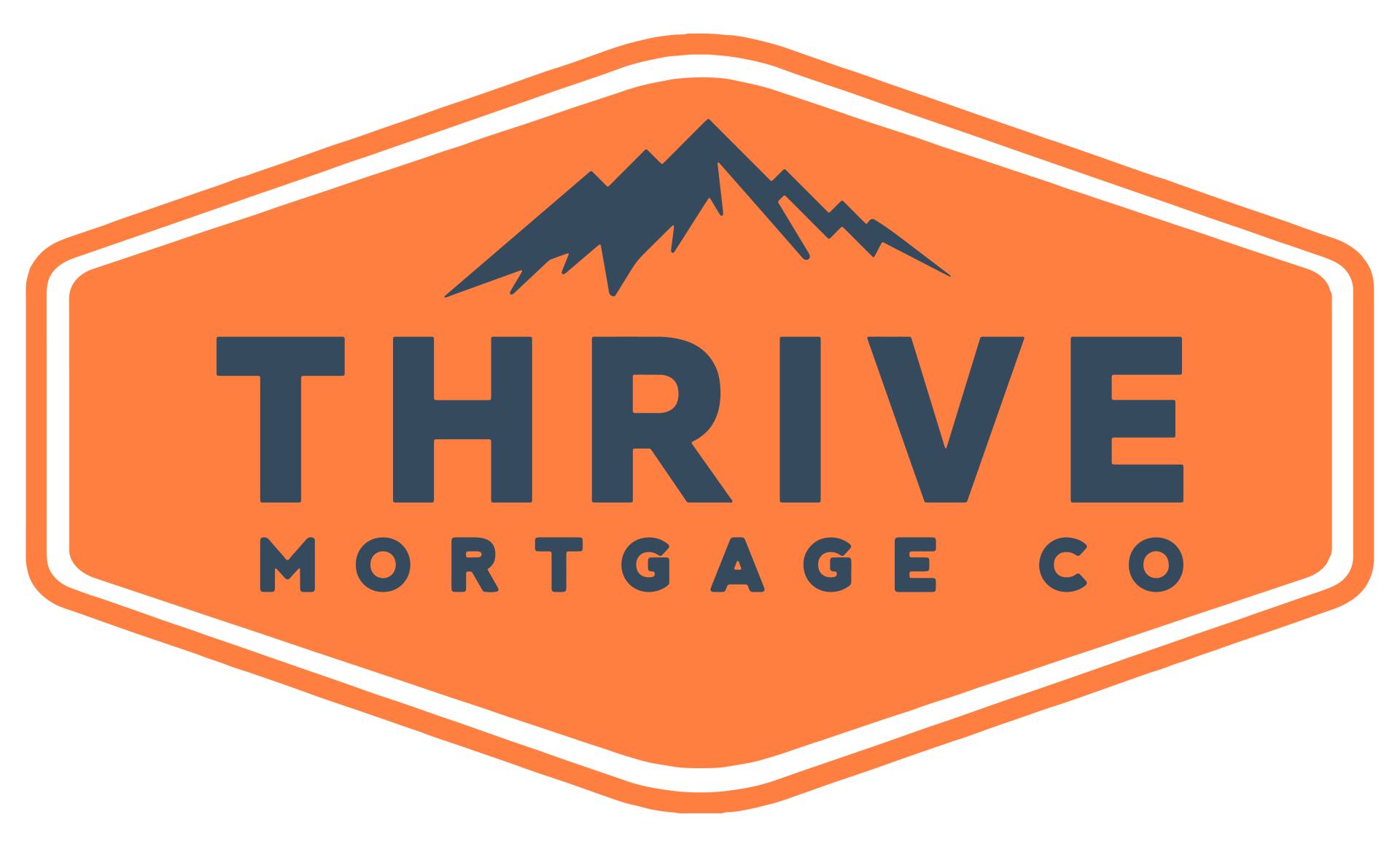How To Build Your Next Home | YVR Real Estate & Mortgage Show | Podcast Episode 71
What To Know When Building Your Next Home
You’ve heard a lot in the last few weeks about the construction series and we broke it up last week with more current events getting back to the equity piece.
We're going to continue talking about different ways to get into the market and take advantage of the market. If this is your first episode, go back and check out our previous construction based episodes.
If you're more interested in investing, first time buying, or general guidelines, we've got so many different episodes so make sure to check those out.
In today's episode, we have two guests that we actually asked to come back on the show based on all the feedback that we received. Steve Hill and Danny Evans joined us last year, which you can watch below.
Danny talks a lot about what he calls getting a home for free which is basically using a rental income and construction to reduce your costs and build a home at no additional cost. We also had Steve on as one of the first five episodes because he was really strategic in one of his first moves when he bought a home. He bought a home with zero down payment leveraging another property and essentially had his entire mortgage covered while he was living there and gaining equity. These two have a lot of experience with building wealth and construction but more importantly as real estate agents knowing what to look for.
Alex McFadyen
Obviously, one of the things that consistently comes up in our conversations with all sorts of people right now is building a home, more specifically, how do we get started? It's a lot of first time builders that are going through this and we're also finding a lot of real estate agents inquiring as well. The question that always comes up is what do I do? Where do I go? How do I buy a lot?
Danny Evans
When you get people looking at the whole package, you can't just break out any one component. I'll use Fort Langley for an example. My clients were excited because they bought a lot for $100,000, cheaper, but it was right in a main corridor, which is a very busy spot. They were building a beautiful home. They elected to spend another $100,000 on a same size lot, but in a different location where the sale value of that property is probably $500,000 difference. It's really critical that you don't just try to grab a couple of pearls out of this session and say I know everything. If you can work with really good people, and listen, your podcasts are phenomenal. I think if people did listen to them, they would learn a lot.
Deryk Williamson
I've seen a lot of people that when they get involved in building, they look at all the dollars. They look at the cost of the land, build, and the digging. People start to penny pinch and they go for the cheaper lot but when they're buying the existing home, they're not having those thoughts. When people go through that financial process, they are always trying to skim things down because they know you can make good money building a home. They're not really thinking about the big picture.
Steve Hill
They like to buy the end product because they can see, touch, and walk through the house and know exactly what they're buying. The biggest hurdle that we find with a lot of our clients is the unknown for the build and that's what we try to comfort them through it and make it as easy as possible.
Alex McFadyen
It's much different than just buying the home that you're moving into, that you can touch and feel. Even if it is for your family and your home, you do need to understand that investment value and potential but also things like setbacks.
Should I be purchasing in a more rural area? What should I be looking for?
Where do you guys start when it comes to talking to someone about location and what to look for at the beginning?
Danny Evans
One of my favorite mantras is making the house pay for itself. People always say how expensive housing is and I also say how cheap it is. One way it can become cheap is building a house that has a suite or something that you can Airbnb. In combination with zoning, what you're building, and what you can build on that lot, you might want to know what components as well. For example, can it take a basement?
If you're relying on your own knowledge of that, it can be dangerous. Furthermore, if you go into a municipal hall, you need to go in with the details. If you don't go in with the details, they won't be able to magically come up with a formula that you're after. What you'll have to do is get together with a builder who is knowledgeable. Also get a few mentorships from people who have built their homes and ask them what went wrong. Usually what went wrong is they tried to do it all on their own to save money instead of using professionals.
Alex McFadyen
What I'm hearing from you is before you pick a location, understand the specifics around what you want to build and make sure that it suits the location and the cities.
Danny Evans
It's critical. One of the things that builders, realtors, and buyers don't look at is zoning.
Make sure if you're working with a builder, that they clearly understand the zoning or that they have the vehicles to be able to find out what the zoning is.
Steve Hill
We just ran into a similar situation in Fort Langley in conjunction with zoning. Another really important factor for finding the right load is finding out what the servicing is. In Fort Langley, it's majority septic. People don't realize that the city sewer runs down 96. There's a house listed for sale on Glover currently, that if you were to knock that house down, you could potentially connect to the city sewer.
Danny Evans
Under an R1 zoning the lot is 10,000 square feet. A lot of times I'm looking and saying, there's a lot that's 16,000 square feet, if you combine with your neighbor that's got 14,000 square feet, you’ve picked up a free lot. We do that over and over again.
Alex McFadyen
Can you break that down in a little bit more detail?
Danny Evans
If you look at your zoning, R1 zoning is 10,000 square feet. If the lot you’re buying is 17,000 square feet and the neighbor's lot is 17,000 square feet, now you have 34,000 square feet. Each lot has to be 10,000 square feet. You can subdivide and pick out an extra lot. It is not quite as easy, as you do have to put the parameters together but if you work with anyone who understands zoning, they will be able to help you. If you can get a knowledgeable realtor, it's a critical component because they bring the financing together, they bring the building together, and they bring the zoning. Getting the right people makes it less tough of a job, search out the best people.
Deryk Williamson
Typically people need to get pre-approved to figure out what their budget is, how much can you spend? The next conversation is probably with yourselves and a builder to figure out what it is that they want. Do they want a coach house? Do they want a basement suite? How much square footage do they need? Now they have their budget, they kind of know what they want and then you guys are off to the races looking for the last big part. When you guys chat with people it is usually a builder involved at that point?
Danny Evans
You've laid out a great way to do it. They would go through those various components and then you match what they want to a lot.
Steve Hill
Frontage is such a key component too. The lot that I'm on now, it's 88 feet wide, versus my last one which was 60 feet wide. It just opened so many more doors for what I want to do as far as a triple car garage.
Deryk Williamson
Figure out what you want to build then buy a lot rather than buying a lot and trying to make something work.
Alex McFadyen
Would you have a preliminary conversation after being pre-approved? Is that where you gentlemen would come in?
Danny Evans
For sure. A lot of times we'll recommend a builder because it's so critical that you get the right one. If you've got a local builder, you'll look like a genius because they'll just help you walk through from start to finish on the actual build.
This just happened a month ago with a client. The first guy I ever got building, he just sold one of the biggest properties he’s built. He started out in 1989 to build his first home. He sold that house for $60,00 and has been building and selling ever since. He’s just sold for $6 million and has clear title.
It's alluding to what Steve was talking about earlier. You're talking about lots, which lot should you pick? Well, it may be dependent on where you are in your life, how old your kids are, and where your financial position is. That's another trend that we're witnessing right now even working with buyers. They might be buying a lot just to hold on. They're going to live in the house for five years and then they're going to build. They can get all their ducks in a row.
Steve Hill
They take their time, they just want to build up a little bit more equity. Meanwhile, the lot cost just keeps going up
Deryk Williamson
Many people, when they think about building, they picture this flat lot like a piece of dirt. People don't even think about that concept, which is huge, let alone a tear down. There can be a house on the property, it can be a decent home, but sometimes it makes sense to purchase that tear down and build your dream house.
Danny Evans
Right now we've got four homes underway with our clients and builders, and the homes that they're building are all with side suites for their elderly parents. We've actually had it where the parents are in the main house and the kids are in the side suite. There's so many variables that you can go through. What I like to do is again, make it affordable.
Alex McFadyen
Steve, because you're going through this process again for the second time or the third time, what made you go that route instead of purchasing maybe a bare land?
Steve Hill
There wasn't anything. It's really tough to find a bare lot in certain areas, like in Fort Langley, they just don't exist. Danny always preached to me to buy a lot with a lot of frontage. Like I mentioned before, this had 88 feet of frontage and an eastern exposed backyard. One tidbit is people tend to gravitate away from a northern exposed backyard. From a resale standpoint, this worked. It gave us time to do our plans and get everything organized. We're living in the house, it's going to be coming down, there's going to be a little bit extra cost with the abatement and tearing down an older home. It's worked out really well for us.
Deryk Williamson
Values have gone up significantly, which helps with equity and helps with building and everything else.
Alex McFadyen
Hold the property because you're moving into a set detached home. I don't think people realize financing a lot is different from financing a house.
Steve Hill
I just had a buyer and Deryk worked with them on financing their whole plan. They want it to be in Fort Langley, their goal is they want to build but they're just not quite there. They bought a lot with a house that has some life left in it. It'll work for them and they're going to be in a much better position to build in the next five to 10 years.
Alex McFadyen
Danny, besides the busy street that you mentioned, what are the other things that you guys have seen to watch out for?
Danny Evans
Watch out if it's got streams or creeks on the property. They can be very problematic. Sloped lots can also be very problematic. Properties close to a creek can have a heavy slow floodplain, so you really want to be careful. My suggestion is, don't save the money and buy the good lot, you'll make way more money at the end of it and you'll have an easier build. It just makes it so much better.
Deryk Williamson
It's pretty daunting knowing all these little things. If somebody went out and bought a private sale without doing any research, or they're working with maybe a newer agent that doesn't deal with construction, you can make a pretty bad decision really quickly. With streams, there's some situations where you might not even be able to build a new house and have to build off the existing foundation, which doesn't always work very well.
Danny Evans
Stream side setbacks when I started were five meters. Top of bank, top of the river, flooded are all jargon terms. Make sure you know what those terms mean.
Deryk Williamson
Let's say you guys help your clients and they find a pretty nice looking lot. You guys obviously know what you're looking at. Who is the one going to the city and doing the research? Do you guys get involved? Do you send your clients in with the ammunition that they need? Is that builder or architect involved at that point?
Danny Evans
Some of the last lots that Steve and I had sold, we saw them and we said all those are fabulous lots because of a number of reasons. They are easy to build on so that you can get a basement. There’s fabulous soil conditions of sand, it's not mud.. It's not an infill lot, that's another thing that you'd have to be careful of. I did a subdivision once and all the lots were 810 feet deep for their foundations. One lot kept digging at 30 feet, they still hadn't hit bottom. Who does all that there is someone who's extremely knowledgeable about the area. A good realtor in the area, a good builder in the area, a planner, a designer, all of those you might want to touch bases with because they might have touched it. Don't be afraid to call all of those people to determine. So it might not be the realtor, it could be the builder or could be the planner.
Steve Hill
A good builder will guide you through this. If you’re going to the township, the person at the front of the counter doesn't necessarily know a lot of the information that they should know. The answers that you're going to get are probably incorrect. That's what we run into all the time, we'll go to the hall with a client and you get an answer from them saying, yes, you get an answer from policy, no, and being able to stick handle in between that and maybe trying to talk to the right people behind the front desk.
Deryk Williamson
There's obviously a lot more due diligence, which is my next question around subject periods. Subjects are tough. If you're buying something with the goal of building, are you guys typically asking for more time in a normal market? Are you putting different subjects in your offer?
Danny Evans
I always keep it really simple, subject to a feasibility study that involves planning, building soil conditions, and keep it simple. Give yourself 30 days for that, I think it's important to keep it all simple.
Deryk Williamson
You're not getting that done in five business days, like your typical purchase.
Danny Evans
Not usually but a lot of times if I see something that's really hot, I'll buy it virtually on the spot. By doing that, I researched on my own. I've looked at the zoning. I've looked at the houses surrounding or maybe knocked on a neighbor's door and asked, do you know anything about that property next door?
Alex McFadyen
I want to go back a little bit to the investment component piece when you're looking at properties. One of the things that we'd like to touch on with people is obviously unique properties and building unique properties. That's something we hear about from time to time, which is I look at these crazy dreams of all these unique properties.I think that comes back a little bit to building schemes to a degree but how do you advise people on when they come up with grand ideas. Where do you step in or is it just hands off?
Danny Evans
If you don't step in, you've created a nightmare. If someone picks up on a seminar and then says, I listened to those guys for a half hour and now I know everything. No, you've got to pick it up because if you don't build the right house, on the right lot, everything we say here can vanish quickly. You want to make sure that you've got it. If you do it properly, there's easily just in soft costs; financing, double taxation, property transfer tax, and GST. In fact, even commissions, you've got somewhere between $250,000 to $300,000. In saving by doing your own, the last 15 builds that we currently have underway, I can assume that those people, partially because of inflation and because of the money that they've saved, they're going to be pocketing about $600,000 on those homes.
Alex McFadyen
Let's talk a little bit about current market conditions and buying a lot in this market. What are your suggestions in a hot market like this one? We're seeing people even compete on lot pricing, how do you guys feel about that? How do you navigate that? Is there any different types of advice you give or is it all the same as you had before?
Danny Evans
I find that the reason most people won't do it is that they get bad advice. They'll call somebody who doesn't know anything about it. My best answer to that is, make sure you go to someone who's done it and who knows it. As soon as they've done it, or know it, a lot of times they'll look at that property and they'll say that's a fabulous piece of property. If I could buy it for that dollar, I'd buy it. You have to be prepared to step off the curb. if you're not, it goes back to the 100-zero rule. I'll tell you 100 reasons why to do something, zero not to, and people will make up 10 reasons not to because it's in our nature.
Alex McFadyen
Anything that you're recommending as far as trends? There's certain circumstances that might not make sense from a law perspective right now, or from a building perspective. Is it more about doing the right due diligence?
Steve Hill
You need to have patience with the trades, the township, and everything. For my situation, if you calculated from the day that we started almost seven months to draw up, just the house in, we're now in the process of waiting with the township. We still got another six months there. It's over a year and it's not normally like that. Right now, it's a very cumbersome process with skeleton staff.
Deryk Williamson
There are some people that are not built for that kind of stuff. They should just buy a resale home and move into their home and be okay with it. That's okay. Some people can't manage that plus their jobs and renting in a basement suite.
Danny Evans
What's the downside? The first thing that I tell everybody when they're coming inis you have to be together on it. If only one of you wants to do it. Don't do it. It'll be a nightmare
Another downside is that people overbuild. They overspend and they spend money in the wrong spots. Those are the downsides and those can kill you quickly.
Steve Hill
That's probably a good thing to touch on as well when we're going through the process or trying to coach clients on building. There's no point in having a nice beautiful $5,000 front door and then you go and spend equal or close to the same on your main doors in the garage. No one's going to really pick up on that on the resale. You won’t get your dollars back on it.
Alex McFadyen
In this type of a market or any market where there's scarcity, running short on funds. There's a lot of unique situations right now with building and how construction financing works. Lenders typically hold back enough money to complete your build at all times.
Deryk Williamson
There has to be a good buffer of cash going into the project. The further progress that you make on your build, the bank can then release more money to you to keep things going. A big challenge that some of our clients are seeing is they're having to pre-order flooring and doors and everything you can imagine because of delays through COVID. They're shelling out $100,000 for this material, but that material isn't installed in the house. These clients are running out of money because they've had to pre-order materials. Lenders are doing a progress report and saying the money's not invested in the home yet so we can't give you a drop. A lot of people are actually in positions where they can't get more money from the bank. That material that they purchased adds no value to the lenders in their eyes because it's not affixed to the home. Some people are lucky enough to have additional savings but others are borrowing from family. A lot of people will be going through that right now with COVID.
Danny Evans
Another key component is that the person that's doing the financing has to understand what a build is. You're doing a number of these podcasts and they are critical, because you guys understand it. One of the big warning issues that I put out to all people is that they'll go to the bank and the person that's advising at the bank has never built a new home and has never been involved in it. They're lost as far as the financing. One of the first things to do is make sure the financial advisor that you're talking to about your financing and your mortgage understands the process.
Deryk Williamson
Something that we've been doing is getting people approved for larger mortgages than they actually need. There is a buffer built in, or if they have X amount of dollars of downpayment, we're only using 75% of that so that they have a buffer set aside. Not everyone's in that situation but if you can do that, it helps.
Alex McFadyen
People need to be smart about the type of lending they're looking at and not restrict themselves just to the banks. This is due to the rigidness of a lot of the banks in regards to the draw schedules and so forth. They have the cash or they have the capital with some of the private lenders. Alternate and construction lenders just understand it better. They're not under these corporate guidelines and structures where they can look at it. They can be a lot more flexible to people. A little bit of cost upfront but as Deryk mentioned, long term it will save you the money. You can get access to the funds that you need.
If anybody wants to reach out to you guys, just search up Steve Hill, search up Danny Evans on Google.
If you guys have any more questions about buying lots, construction, financing, and that kind of stuff, make sure to check out these gentlemen and reach out. Their wealth of knowledge and information in this space will allow them to take very good care of you once we get your financing in place.
Danny Evans' website
Steve Hill's website
https://royallepagelangley.com/agent/steve-hill/
Have more questions? Get ahold of us!
We're on Instagram!
instagram.com/thrivemortgageco
Check us out on Facebook!
How to Reach US!
📲
Call 604.398.5575 or Email us!
More Questions or READY to get started!?
Just Ask US > Click Here to set up a call or EMAIL us
